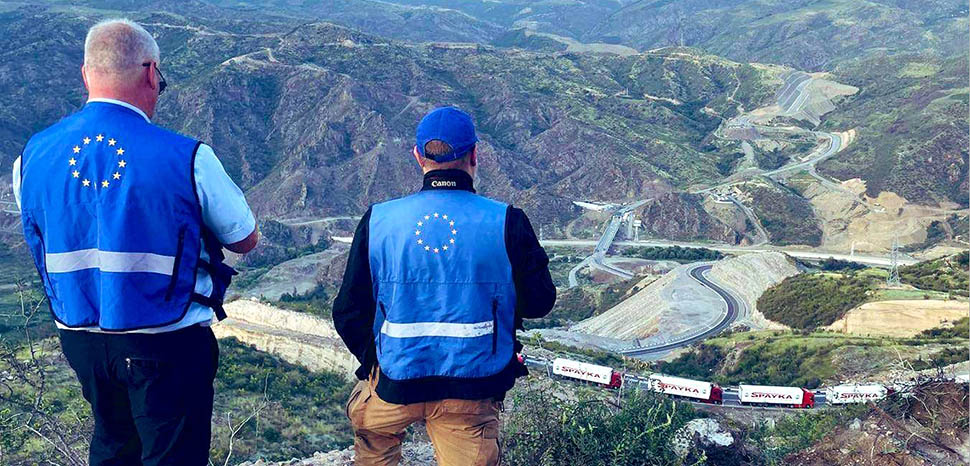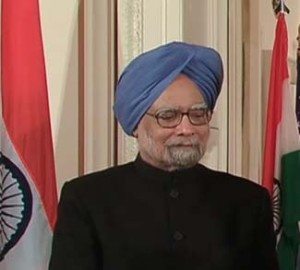Azerbaijan is currently starving more than 120,000 Armenians in Nagorno Karabakh. Founding International Criminal Court Prosecutor Luis Moreno Ocampo states that it is “reasonable to believe” Baku’s blockade constitutes genocide.
For months, the Armenian National Committee of America’s pleas to U.S. policymakers fell on deaf ears. Last week, members of the United Nations Security Council convened to read speeches to each other. Meanwhile, a 40-year-old man died of starvation in Stepanakert. Thoughts and prayers remain the order of the day. Never again becomes again and again and again.
Put simply: While the international community lacks the collective hard power, political will, and moral backbone to do anything about Baku’s blockade, America – the only state which possesses all three – is reluctant to help Yerevan and Stepanakert due to geopolitical considerations.
Armenia
Sandwiched between a hostile Turkey to the West and an even more aggressive Azerbaijan to the East, Armenia’s greatest allies are Russia and Iran. Yerevan is a member of key Russian-led institutions such as the Collective Security Treaty Organization (CSTO) and the Commonwealth of Independent States (CIS). Instead of entering a free-trade agreement with the European Union, Armenia joined the Russia-dominated Eurasian Economic Union. Yerevan recently signed a memorandum of understanding on energy cooperation with Iran. It also acquired drones and missiles from Tehran in contravention of the Countering America’s Adversaries Through Sanctions Act.
Azerbaijan
Azerbaijan maintains close cultural, economic, and security ties to NATO member state Turkey. Baku’s gas and oil feed Europe’s insatiable appetite for energy. Given that the “enemy of my enemy is my friend,” Azerbaijan’s disputes with Iran translate into strategic partnerships with Israel and America. Washington provides security assistance to Baku through a presidential waiver to Section 907 of the Freedom Support Act. Israel has replaced Russia as Azerbaijan’s principal supplier of weapons. The Azerbaijani army is also trained by the Turkish military. Undeterred by an abysmal human rights record, Azerbaijan remains an invaluable strategic partner for the West.
The United States
The U.S. is not allied to Armenia. They maintain cordial diplomatic relations, but Washington is not legally bound to Yerevan by any bilateral or multilateral security agreements. While the U.S. owes nothing to Armenia, it has nonetheless provided billions of dollars in humanitarian aid and development assistance to Yerevan since its independence. There are urgent moral imperatives but unfortunately few strategic incentives for America to help Armenia or the Armenians of Karabakh because of Yerevan’s alliances with Tehran and Moscow, two of Washington’s sworn enemies.
At the top of America’s long list of foreign policy priorities is dealing with Russia’s genocidal invasion of Ukraine. Tehran supplies Moscow with drones and munitions that destroy Ukraine’s critical infrastructure and rain terror down on innocent and defenseless Ukrainian civilians. When Armenia isn’t serving as a corridor to traffic Iranian-made weapons to Russia, Yerevan bolsters Putin’s war chest by helping Moscow evade sanctions and export controls imposed by the West. While Armenia reaps enormous economic benefits from this arrangement, this does not evoke empathy in Washington.
Even America’s generosity has limits. Washington is unlikely to sabotage its partnership with Baku for a CSTO member state that violates U.S. law and imperils its national interest.
The Nagorno Karabakh Dispute
The Armenia-Azerbaijan Nagorno Karabakh dispute centers around the separatist Republic of Artsakh, which declared independence from the Azerbaijan SSR during the Soviet Union’s collapse in 1991. The international community did not recognize its independence. Neither did Armenia. Despite being occupied by Armenian soldiers and paramilitaries for almost three decades, the region is still internationally recognized as Azerbaijan’s sovereign territory. This includes by Armenia’s greatest allies: Russia and Iran.
While Armenia seeks to protect the Armenians of Artsakh, Azerbaijan is determined to regain control of Nagorno Karabakh. Given that Russia is bogged down in Ukraine, Baku has foregone another military operation and resorted to blockading the Armenians of Artsakh– a form of ethnic cleansing – to accomplish this objective. The situation is dire, and there is no Armenian-led military solution to the Nagorno Karabakh dispute that ends well for Yerevan or Stepanakert. A third full-scale war in the South Caucasus will be devastating for landlocked Armenia and even worse for the Armenians of Artsakh.
Solutions
Many have argued for a US-led humanitarian airlift to Nagorno Karabakh. Although possible and necessary, there are at least two issues with such an operation.
First, that responsibility is incumbent on Iran and Russia, Armenia’s allies, and should not fall on America’s shoulders. It doesn’t because both Tehran and Moscow lack the moral predilection to perform such a task. Even worse, this type of operation would be detrimental to their respective national interests. The status quo, which keeps Armenians in Stepanakert starving, Yerevan at odds with Baku and therefore within Moscow’s and Tehran’s respective geopolitical orbits, suits both Iran and Russia fine.
Second, a humanitarian airlift to Nagorno Karabakh is a band-aid for a bullet wound. Even if the Armenians of Artsakh are supplied and Baku finally ends its blockade, the root of the problem remains: Nagorno Karabakh is Azerbaijan’s internationally recognized territory occupied by both Russian “peacekeepers” and Armenian soldiers and paramilitaries without Baku’s consent. When this episode concludes, Azerbaijan will still seek to liberate its territory from the occupying militaries and reclaim its land.
Therefore, the problem to solve is determining the status of the Armenians of Nagorno Karabakh moving forward: Are they going to be citizens of Armenia, Azerbaijan, or Artsakh?
With every passing day, Armenia’s hand grows weaker while Azerbaijan’s negotiating position improves. Azerbaijani President Ilham Aliyev’s rhetoric evolved from bestowing a “special status” upon the Armenians of Artsakh to “full integration” into Azeri society since the second Nagorno Karabakh War ended. Given both Baku’s human rights record and the Armenophobia prevalent in Azerbaijan, that solution is unlikely to bode well for the Armenians of Artsakh.
Armenian Prime Minister Nikol Pashinyan is aware of Azerbaijan’s strategic advantage over Armenia, understands Yerevan needs alternatives to Moscow and Tehran to prosper in the 21st century, and has sought to make deals with both Baku and Ankara. Days after stating Armenia would recognize Azerbaijan’s sovereignty over Nagorno Karabakh provided that Baku respects the rights of the Armenians of Artsahk, Pashinyan attended Turkish President Erdogan’s inauguration. These developments are small steps on the long road to peace and reconciliation.
Nevertheless, Pashinyan must go further in courting the West. In January 2023, I argued that Armenia should withdraw from the CSTO because Moscow’s strategic designs diverge from Yerevan’s national security concerns. This would enable Armenia to pursue a policy of strategic ambiguity. In other words, Yerevan could finally cooperate with whichever “great power” it sees fit on a case-by-case basis instead of limiting its military options to treaty allies like Russia and authoritarian neighbors like Iran. To say this would be perceived positively by Washington is an understatement.
None of this absolves America nor the West of their responsibility in this matter. They also have an important role to play in resolving the Nagorno Karabakh impasse. The Free World cannot claim to champion human rights while one of its partners ethnically cleanses a minority community from its territory.
The West has significant leverage with Azerbaijan. Washington consents to Jerusalem’s arms sales to Azerbaijan. It also provides security assistance to Baku through an exception to Section 907 of the Freedom Support Act. The European Union maintains lucrative energy deals with Azerbaijan. British Petroleum owns and operates many of the gas production facilities and pipelines in the country. The list goes on and on. They could easily put their money where their values are, and pressure Baku to make concessions to the Armenian minority in Nagorno Karabakh.
Conclusion
From a geopolitical perspective, Azerbaijan checkmated Armenia years ago. It is time Yerevan read the writing on the wall, resolve the Nagorno Karabakh dispute, and make peace with Baku. Politicians make mistakes. All humans do. But doubling down on a losing horse is compulsive gambler behavior, not a recipe for long-term success. Short-term thinking will only lead to another war. A brighter path, of peace and prosperity, is possible for those wise enough to build it.
George Monastiriakos is a Fellow at the Geneva Centre for Security Policy. You can read his published works on his website.
The views expressed in this article belong to the authors alone and do not necessarily reflect those of Geopoliticalmonitor.com.




